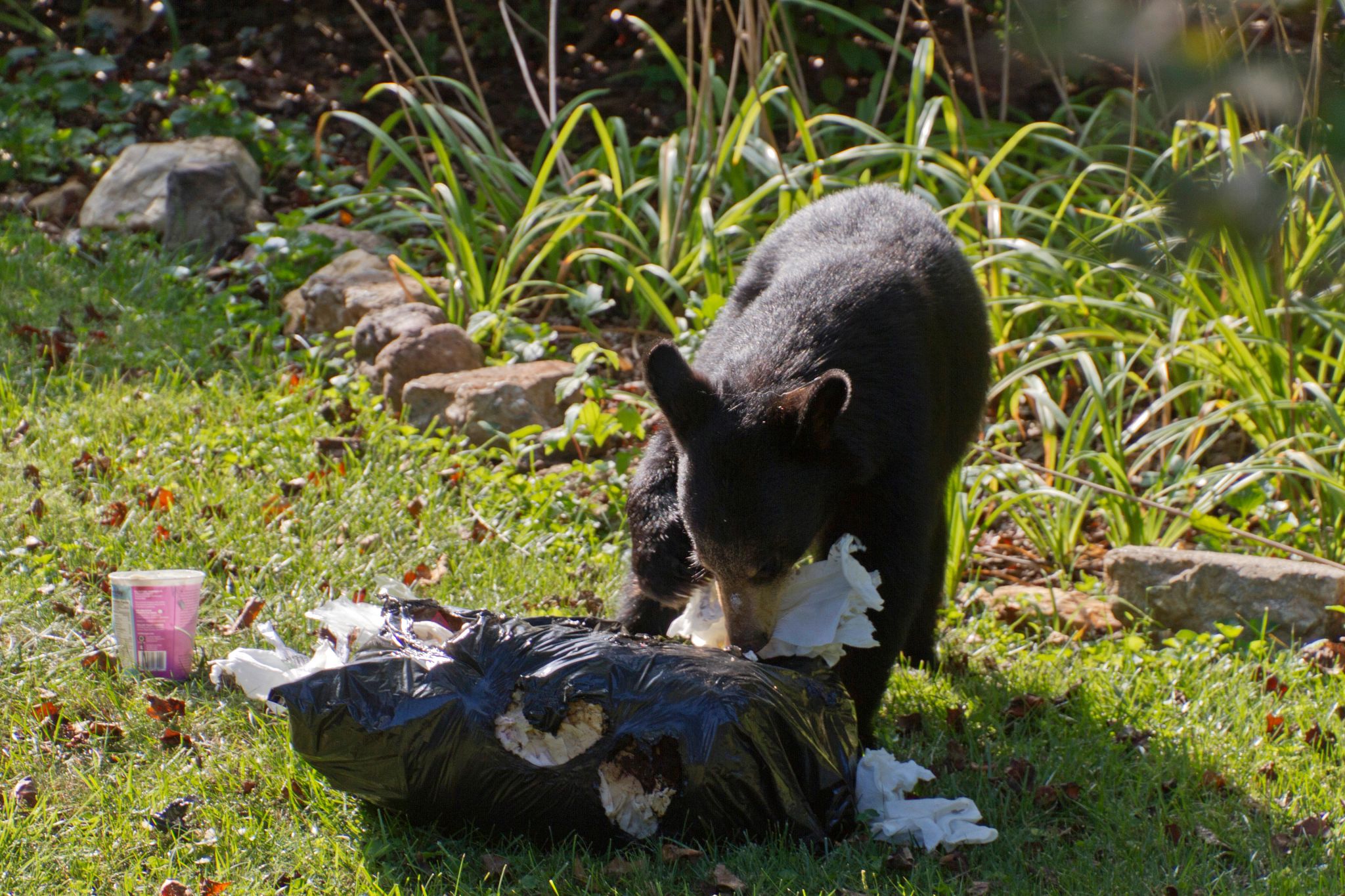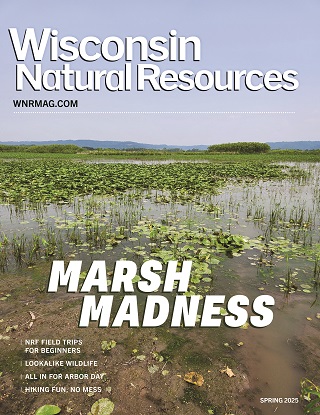Contact: Brad Koele, DNR Wildlife Damage Specialist
Bradley.Koele@wisconsin.gov or 608-576-3914
Take Steps Now To Avoid Potential Conflicts With Black Bears
 The DNR encourages residents to be aware of bear this spring. Follow guidance from the DNR to avoid potential conflicts.
Photo credit: iStock/ AwakenedEye
The DNR encourages residents to be aware of bear this spring. Follow guidance from the DNR to avoid potential conflicts.
Photo credit: iStock/ AwakenedEye
MADISON, Wis. – The Wisconsin Department of Natural Resources (DNR) encourages residents and visitors to take precautions to avoid potential conflicts with black bears across the state as they emerge from their dens early this spring.
Black bears are most common in the northern half of the state; however, populations have been slowly expanding southward for the past few decades. They are naturally cautious animals that normally avoid contact with people for their safety, but conflicts between people and bears can arise. Additionally, bears can quickly learn to associate humans with food when food sources are available.
"As the weather warms and we all get outside more, some of our activities can generate food sources for bear,” said Brad Koele, DNR Wildlife Damage Specialist. “Grilling outdoors, feeding birds, pet food provided outside and unsecured trash cans can lead to conflict when they become bear food sources. It is important to make sure these attractants are inaccessible to bear at all times of the year, but it’s especially important in spring when natural food sources are limited.”
If a bear finds food such as bird feed or garbage near homes and cabins, it will likely return. Visits are more likely to stop when food is no longer available. Bears will periodically check sites where food was once available, so it may take several days to weeks after a food source has been removed for a bear to discontinue visiting food sites entirely.
Follow these steps to avoid attracting black bears:
- Do not knowingly feed a bear
- Completely remove bird feeders, even during daytime hours – Bears are active during the day and may cause problems even if the feeders are out only during that time
- Clean areas where bird feeders were located so that accumulated deposits of spilled seed are removed
- Reduce garbage odors by rinsing food cans before putting them in covered recycling containers or garbage cans
- Keep meat scraps in the freezer until garbage day, and if possible, keep garbage cans in a closed building until the morning of pick-up
- Be sure to lock commercial dumpsters
- Keep pet food inside or inaccessible to bears even during daytime hours
- Keep barbeque grills and picnic tables clean
Bears are normally solitary forest animals, but their powerful sense of smell can lead them into urban areas in search of food, especially in the spring and fall. Black bears are secretive animals and usually try to avoid people. However, conflicts with humans can occur when bears destroy gardens, bird feeders, apiaries and trash cans.
By understanding bear behavior, there are several ways people can reduce negative human-bear conflicts around their homes. The DNR’s Living With Black Bears In Wisconsin pamphlet is a great resource for learning more about co-existing with bears in Wisconsin.
"We are encouraging property owners and residents to take actions now to avoid conflicts with bear,” Koele said. “Taking proactive steps now will decrease the likelihood that wildlife specialists will need to conduct site visits and implement control efforts.”
If a bear is near your home or cabin, wave your arms and make noise to scare it away. Back away slowly and seek a safe location where you can wait for the bear to leave.
When scaring a bear away, make sure it has a clear escape route; never corner a bear. If you encounter a bear while in the woods, stay calm and do not approach the bear. Never approach a bear with cubs, and for your safety, do not attempt to break up a fight between your pet and a bear.
The DNR partners with the U.S. Department of Agriculture’s Wildlife Services Program to respond to approximately 800 bear-related complaints reported in Wisconsin each year.
If unable to resolve a conflict with a bear, contact the USDA Wildlife Services toll-free line at 1-800-433-0663 for properties in southern Wisconsin and 1-800-228-1368 for properties in northern Wisconsin.
For more information regarding bears and safety, visit the DNR webpage here.

